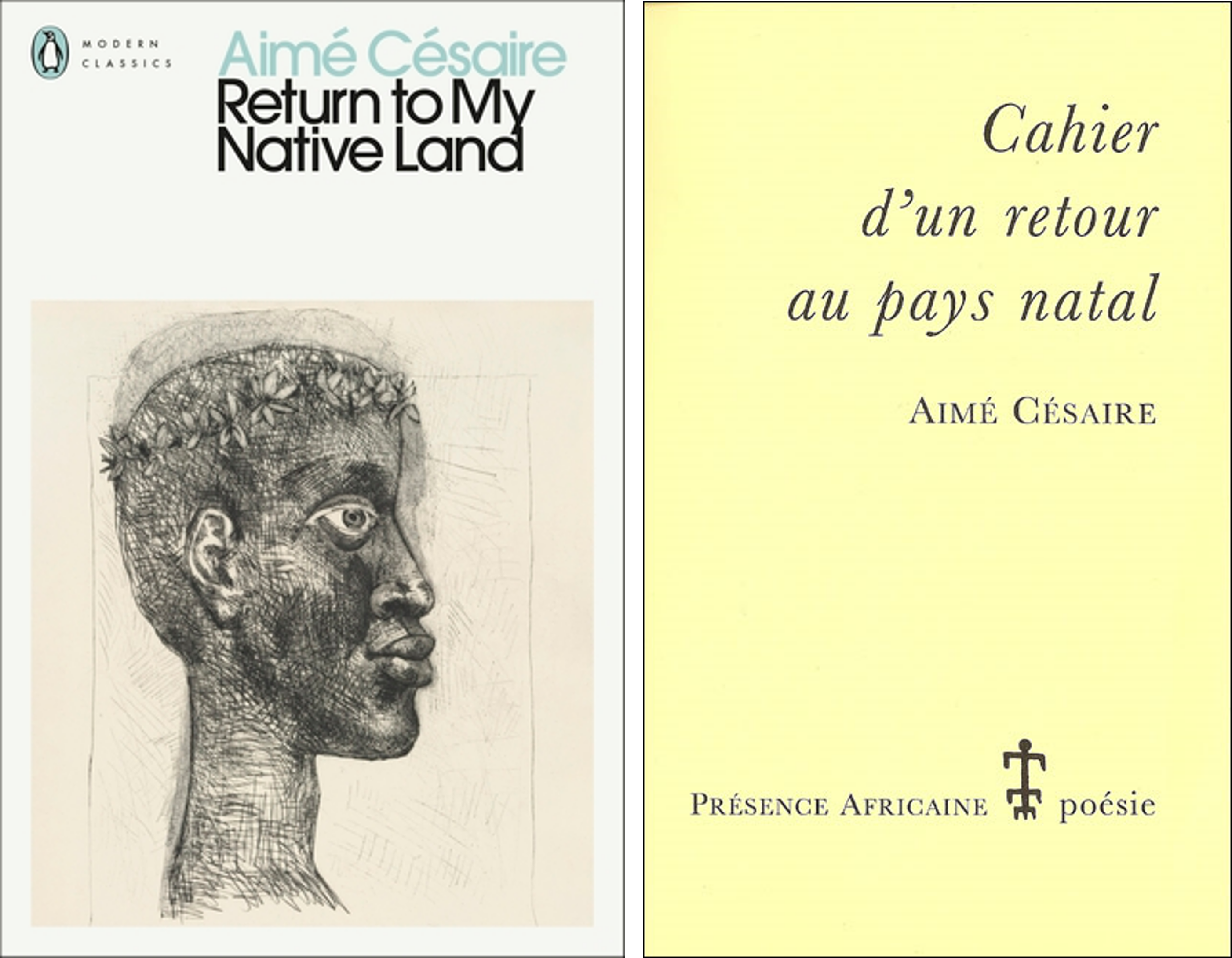_________________________________________________
A Poetic Monument to Identity and Liberation
In June 2024, Penguin Modern Classics will release a revised edition of Aimé Césaire’s seminal work, Return to My Native Land (Cahier d’un retour au pays natal), marking a significant milestone in literary history. With an introduction by Jason Allen-Paisant, this new edition of John Berger and Anna Bostock’s translation promises to reignite discussions on “négritude”, anti-colonialism, and the enduring power of poetic resistance. Césaire’s masterpiece and timeless historical significance, thematic richness, and more relevant than ever in today’s world. Thanks must also go to the unwavering dedication of Présence Africaine Editions, the original publisher.
The Historical Context
Set against the backdrop of pre-World War II Martinique, Césaire’s Return to My Native Land emerges as a poignant reflection on the legacy and trauma of slavery, colonization, and the quest for self-determination. Navigating the complexities of racial identity and cultural heritage, Césaire’s poetic narrative becomes a rallying cry for decolonization and a celebration of a rising Black identity. André Breton considered the Notebook as “nothing less than the greatest lyrical monument of our times.”
Poetic Innovation and Resistance
Central to Césaire’s work is the concept of “négritude”, a cultural and intellectual movement aimed at reclaiming African heritage and asserting the dignity of Black people worldwide. Through vivid imagery, rhythmic language, and profound symbolism, Césaire challenges colonial narratives and opens to the rise of a global cultural movement out of an oppressed World. Césaire’s poetic style, characterized by its explosive energy and lyrical intensity, defies conventional boundaries and transforms language into a weapon of resistance. Drawing inspiration from surrealism and existentialism, Césaire crafts a narrative that oscillates between the real and the surreal, inviting readers to confront the harsh realities of oppression while envisioning a future defined by freedom and equality.
The Legacy of Aimé Césaire
As one of the most influential Francophone Caribbean writers of the 20th century, Césaire’s impact extends far beyond the realm of literature. His unwavering commitment to social justice, his advocacy for cultural authenticity, and his relentless pursuit of liberation continue to inspire generations of activists, poets, and scholars worldwide. In Césaire’s poignant words: “And we are standing now, my country and I, hair in the wind, my hand puny in its enormous fist and the strength is not in us, but above us, in a voice that drills the night and the hearing like the penetrance of an apocalyptic wasp.” This evocative passage encapsulates the defiance and resilience embedded within Césaire’s poetry, as he confronts the lies and oppression imposed by centuries of European colonialism. Through his fearless proclamation, Césaire challenges readers to confront the truth of history and envision a future liberated from the shackles of oppression.
Bio: Aimé Césaire was born on June 26, 1913, in Basse-Pointe, Martinique. In 1934, Césaire, along with other students from the Antilles and French Guiana, founded the journal L’étudiant noir, in which he formulated for the first time the concept of Négritude, which he essentially defined as a “dramatic quest” for black identity, as he, being from the Caribbean, experienced uprooting and dislocation, yearning for an Africa he did not know and could only fantasize about. He entered the École Normale Supérieure de la rue d’Ulm in 1935 and began writing “Cahier d’un retour au pays natal,” which he first published in 1939, just before returning to Martinique where he became a literature professor. In 1941, he founded the journal Tropiques with his wife, Suzanne Césaire, in reaction to the cultural alienation experienced by Martinique, which he felt even more painfully upon returning to the country after ten years of absence. The year 1945 marked his entry into politics: he was elected mayor of Fort-de-France and a deputy for the PCF. In 1947, he collaborated in the creation of the journal “Présence Africaine.” Disappointed by the Communist Party, which did not give any importance to the specific problems of the Antilles and the black world, Césaire founded the Martinican Progressive Party in 1957. Throughout his life as a writer and politician, he fiercely defended anti-colonialist positions. He died in Fort-de-France in 2008.
Aimé Cesaire’s Work: Césaire is the author of a significant and multifaceted body of work. As a poet, playwright, and essayist, he managed to express himself in various registers, from Cahier d’un retour au pays natal to Discours sur le colonialisme. Beyond the rage and indignation at the heart of all his work, it proclaims a message of fraternal hope, confident in the possibility of understanding between men, gloriously expressed in the conclusion of Cahier d’un retour au pays natal: No race holds a monopoly of beauty, intelligence and strength there is room for all at the meeting- place of conquest we know now that the sun revolves round our earth illuminating the plot which we alone have selected that every star falls at our command from the sky to the earth without limit or cease.”
As Penguin Modern Classics publishes an edited edition of Aimé Césaire’s Return to My Native Land, readers are reminded of the enduring power of poetry to challenge injustice, celebrate diversity, and ignite the flames of revolution. In revisiting Césaire’s monumental work through this updated edition of the Notebook, we embark on an essential journey of self-discovery, solidarity, resistance and hope—a journey that reaffirms the timeless relevance of his poetic vision in our ever-changing world.
Link to the book on Penguin’s Website: here
Link to the French Original on Présence Africaine: here
Rights information: here
Published by RT
